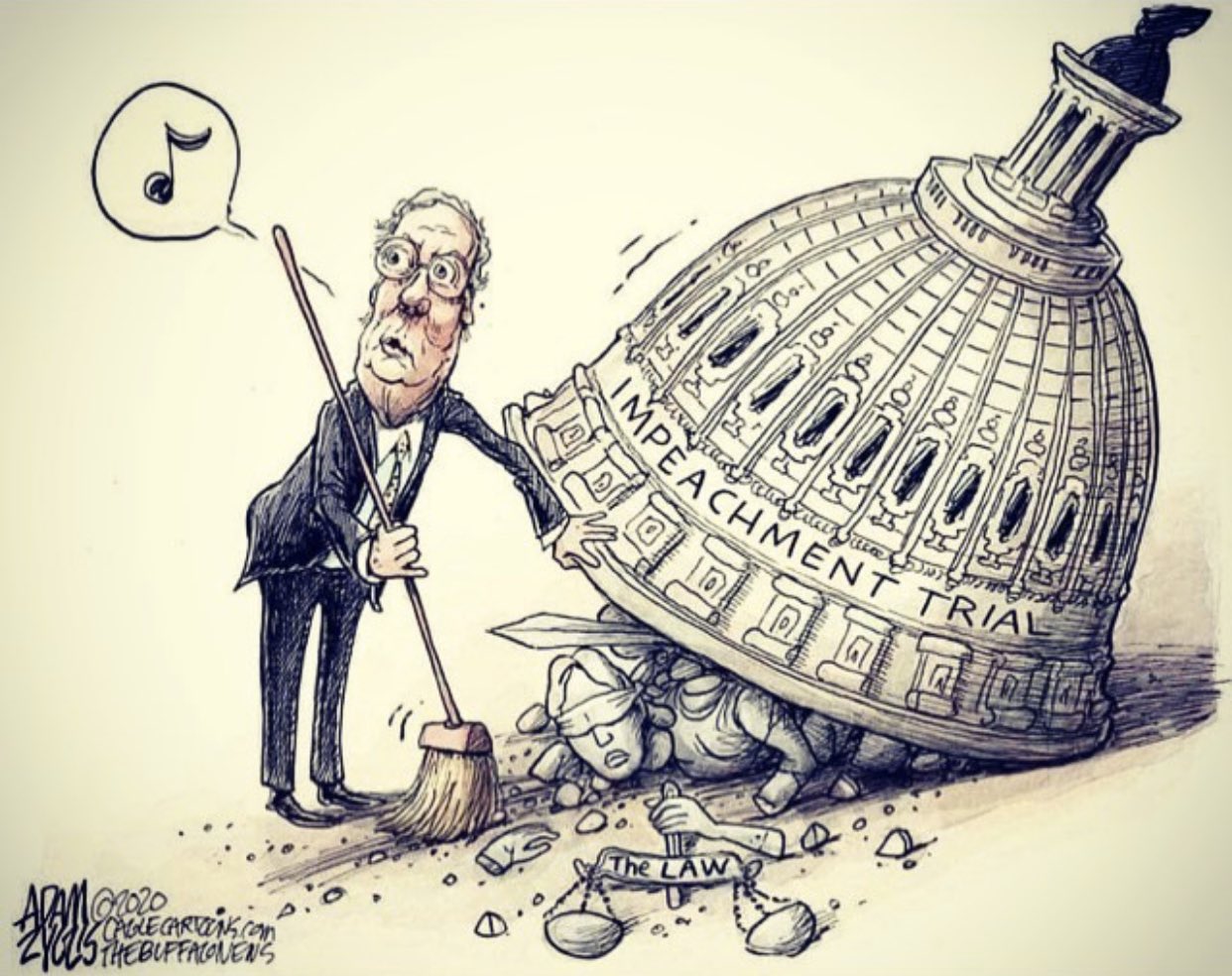After Wednesday's depressing US Supreme Court hearing on state funding for parochial schools, it seems the only remaining question is how far the inevitable conservative 5-4 decision will go in allowing the Trump regime to force tens of billions of dollars to be taken from public schools to give to religious institutions and homeschoolers.
In a case with potentially profound implications, the U.S. Supreme Court's conservative majority seemed ready to invalidate a provision of the Montana state constitution that bars aid to religious schools. A decision like that would work a sea change in constitutional law, significantly removing the longstanding high wall of separation between church and state.
The focal point of Wednesday's argument was a ruling by the Montana Supreme Court that struck down a tax subsidy for both religious and nonreligious private schools. The Montana court said that the subsidy violated a state constitutional provision barring any state aid to religious schools, whether direct or indirect.
On the steps of the Supreme Court Wednesday, Kendra Espinoza, a divorced mother of two, explained why she is challenging that ruling.
"We are a Christian family and I want those values taught at school," she said. "Our morals as a society come from the Bible. I feel we are being excluded simply because we are people of religious background."
Thirty-seven other states have no-aid state constitutional provisions similar to Montana's, and for decades conservative religious groups and school-choice advocates have sought to get rid of them. On Wednesday, though, that goal looked a lot closer.
Five of the justices at some time in their lives attended private Catholic schools, and some of them were particularly vocal. Justice Brett Kavanaugh said that the history of excluding religious schools from public funding has its roots in the "religious bigotry against Catholics" in the late 1800s. He seemed to dismiss arguments made by the state's lawyer that Montana had completely rewritten its constitution in 1972, without any such bias.
Mae Nan Ellingson, one of the delegates to that convention, said afterward that there were ministers and "people of all faiths" at the convention who overwhelmingly had supported the no-aid provision.
"We didn't think that public funds should be used to support private parochial education but rather that public funds need to support public education," she said.
The justices, however, seemed uninterested in that record.
Chief Justice John Roberts and Justice Samuel Alito compared the exclusion of parochial schools from taxpayer-funded aid programs to unconstitutional discrimination based on race.
That view suggested that Wednesday's case has the potential for much broader public funding of parochial schools.
It wasn't enough, for instance, that the Montana court treated all private schools the same way, whether they were religious or not. As Justice Elena Kagan put it, once the Montana court invalidated the tax subsidy for all private schools, weren't they all "in the same boat?"
No, replied lawyer Richard Komer, representing the religious parents. He maintained that the no-aid provision in the state constitution is itself a violation of the federal constitution. And he also argued that because the state constitution illegally discriminated against religious schools and families, the tax-credit program must be revived. In short, that the state has no discretion to abolish it.
"That would be a radical decision," said Justice Sonia Sotomayor.
Justice Stephen Breyer wondered where the plaintiffs' equal-treatment argument would end. He noted major school systems spend billions in taxpayer money to fund the public schools. "If I decide for you," he asked, would these school systems "have to give proportionate amounts to parochial schools?"
Deputy Solicitor General Jeffrey Wall, representing the Trump administration, basically answered "yes."
"You can't deny a generally available public benefit" to an otherwise qualified institution "based solely on its religious character," he said.
In June we're going to have a ruling that forces states to give billions to religious schools and in the wake of Hobby Lobby, it could be a major decision that forces states to fund churches, period.
You can thank Trump being able to appoint two justices for this one. Should he be able to replace any of the four remaining liberals, the US becomes an autocratic theocracy overnight.
The people who see Trump as a messiah figure are getting their wish.




